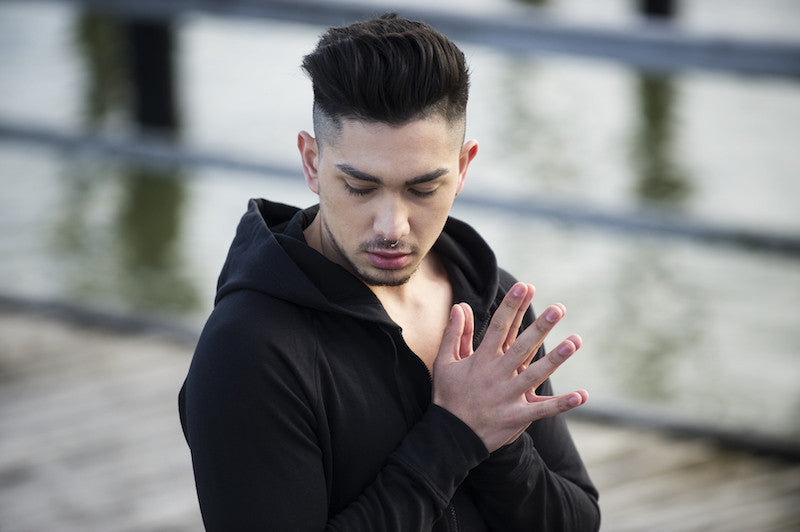“Live so that when your children think of fairness, caring, and integrity, they think of you.”
― H. Jackson Brown Jr.

Fairtrade: Semantics, Significance and Status
The name and the symbol seems self-explanatory, but what does it really mean to purchase a Fairtrade product? According to the Oxford English Dictionary, to be Fair includes ‘treating people equally without favouritism or discrimination’ (1). ‘Trade’ is broadly defined as ‘the action of buying and selling goods.’ Interestingly, it is derived from an earlier West Germanic origin meaning ‘track’, which evolved into a 16th century meaning of ’course’ or ‘way of life’ (2).
When we buy and sell goods, our choices influence the course of our lives, but also the lives of those we are in trade with.
This exchange was once limited to what was locally available, and the interaction was direct, and more personal. Now, in a world where much of our trade is international, it takes effort to catch a glimpse of connection between product, people, and process.
Intentionally or not, we as end consumers are now removed from a clear view of the creation process. As a result, the value of the product itself seems less significant, less sentimental, and more disposable.
In the complex chain that links producer and consumer, there are a huge host of variables that are in flux with the health of the economy, the seasons, and demand-supply ratios. The farmers and growers are on the tip of this chain, which leaves them most vulnerable to fluctuations in the perceived financial value of their work.
To put things in perspective, let’s reverse the equation for a moment, and step into the role of producer. From this perspective, we are making goods for the benefit of human beings that we do not (or perhaps cannot) see and know.
What will you consider fair return for your efforts? What would you want and expect to receive for you and your family?
Most likely, you will want to receive at least what it takes to keep your family fed, safe, comfortable and privy to things like healthcare and education. Unfortunately, this is far from the case for many producers and marginalised workers around the world.
Trade is how our world economy moves. In order to treat people ‘equally without favouritism or discrimination’, we must reach for connection, rather than disconnection. To create a ‘steady way of life’ on both sides of this equation, we need to all make choices that align with a fair course of trade.
 Featured: Women''s Leggings Plain (Grey) | $49
Featured: Women''s Leggings Plain (Grey) | $49
Fairtrade : Standing up for Global Justice
Justice can seem a lofty word reserved for superheroes. It brings about ideas of balance, authority, and righteousness. Its dictionary definition is ‘the quality of being fair and reasonable’, deriving from Latin jus, meaning ‘law’ (3).
In other words, it is both a personal choice, and a shared societal value.
Fairtrade is about upholding justice on an international level. Fairtrade works closely with growers and producers, to ensure stability in wages, decency in working conditions, and empowerment through choice and ownership. A Fairtrade certified product is created based on a partnership, which honours trade as an inter-dependent relationship. Producers receive a fair wage for what they provide, but also a voice in how they manage their resources. This honours our shared right as human beings, to have a say in how we choose to live each day - and how we choose to care for the planet we have been gifted.
As the Environmental Justice Foundation aptly states, ‘without a voice to speak up about environmental injustices and the vested interests that drive them, communities are unable to prevent further destruction being inflicted on the planet.’ (4)
Yes, we live in completely different communities, but our choices push and pull on threads of the same web.
Bhumi Organic Cotton is dedicated to the principles of ethically made in Fairtrade certified farms and mills and work with GOTS Certified Organic Cotton which adheres to strict fair trade practices. We believe there is integrity in creating, and integrity in receiving. If either diminishes, the other will also suffer. In this exchange, and we need to find a balance in give and take.
By choosing ethically made products, we are choosing to build a future that values justice for its people; a world where communities can look after one another, and our shared planet Earth.
For information on the interconnection between human rights and environmental security, and what you can do to to understand and to take action, visit Environmental Justice Foundation | http://ejfoundation.org
Join us!
If you haven’t already, sign up to the Earth Life Balance blog by entering your email below, and discover how you can bring more understanding, compassion and contentment to your choices.
- - -
SOURCES
(1) Fair, Oxford English Dictionary Online
(2) Trade, Oxford English Dictionary Online
(3) Justice, Oxford English Dictionary Online
(4) Environmental Justice Foundation, http://ejfoundation.org/blog/climate-commodities-ejf-oceans-pesticides-water/why-environment-and-human-rights-must-be
About the Author: Lucy Lawes is an advocate for mindful living.

